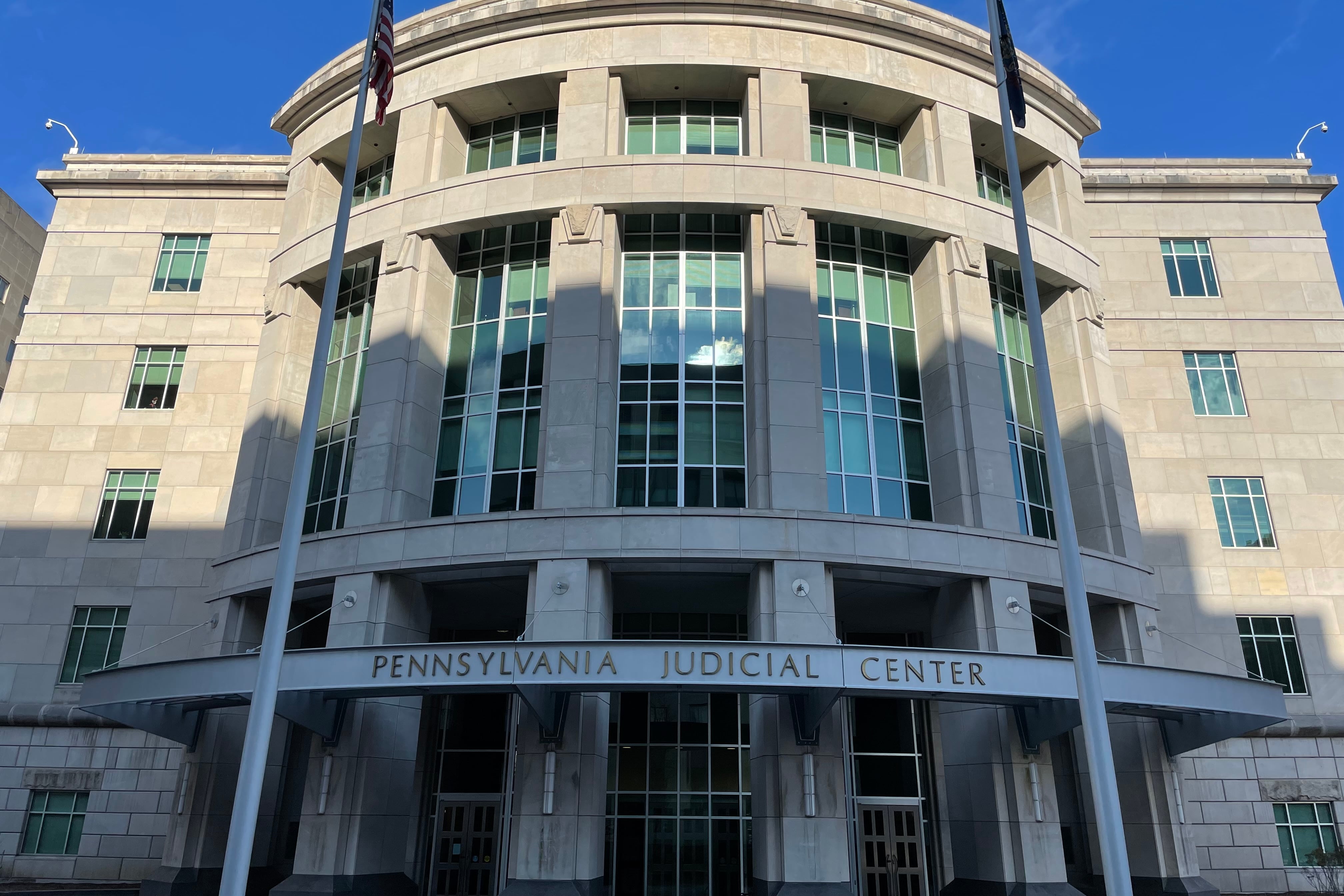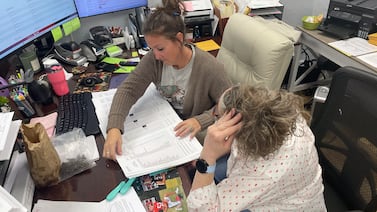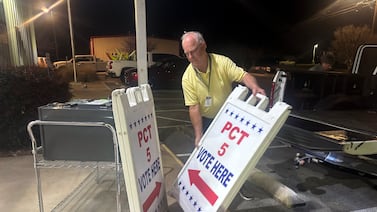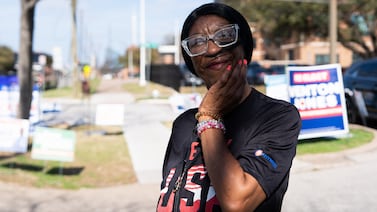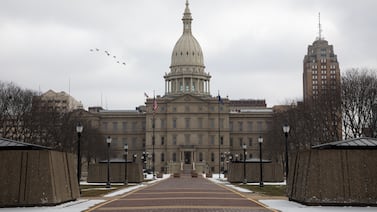Votebeat is a nonprofit news organization reporting on voting access and election administration across the U.S. Sign up for Votebeat Pennsylvania’s free newsletter here.
Update, Nov. 1, 2024: The U.S. Supreme Court denied an application from the Republican National Committee and Pennsylvania Republican Party to halt the Pennsylvania Supreme Court’s Oct. 23 decision.
Marian Schneider, senior voting rights policy counsel at the ACLU of Pennsylvania, said this means voters who make disqualifying mistakes when returning their mail ballot can cast a provisional vote on Election Day and have it counted.
“We think that was correct,” she said. “The Geneser case in the Pennsylvania Supreme Court was a very straightforward exercise of the court’s roles.”
An RNC spokesperson said the party was “disappointed” in the ruling but touted its other recent court victories in Pennsylvania.
This story was previously updated with comments from a Butler County commissioner and RNC spokesperson.
Pennsylvanians must be given a chance to vote on Election Day if their mail ballots have been rejected because of a disqualifying mistake, the state Supreme Court ruled Wednesday.
That means voters who fail to correctly sign or date the return envelope or fail to use a secrecy envelope are entitled to cast a provisional ballot on Election Day at a polling place and have it counted, as long as that ballot wouldn’t be rejected for some other disqualifying issue.
In a 4-3 decision, the court said that provisional voting was meant to assure access to the right to vote, while simultaneously preventing double voting.
Justice Christine Donohue, writing for the majority, noted that the Republican litigants argued that in order to maintain election integrity, provisional ballots should not be counted, but said the majority was “at a loss to identify what honest voting principle is violated by recognizing the validity of one ballot cast by one voter.”
“If appellants presume that the general assembly intended to disqualify the provisional ballot of a voter who failed to effectively vote by mail in order to punish that voter, we caution that such a construction is not reconcilable with the right of franchise,” she wrote.
The American Civil Liberties Union of Pennsylvania and the Public Interest Law Center, which brought the case on behalf of two voters, celebrated the ruling as a victory.
“Today’s decision affirms that if you make a paperwork mistake that will keep your mail ballot from counting, you have the right to vote by provisional ballot at your polling place on Election Day,” said Ben Geffen, senior attorney at the Public Interest Law Center. “This reinforces the right to vote in Pennsylvania.”
The case began in Butler County, which rejected provisional ballots cast by two voters whose mail ballots for the April primary had been rejected earlier for being returned without a secrecy envelope. Provisional ballots are used at polling places by voters whose eligibility is in question but who still want to vote. Those ballots are counted only after the voter’s eligibility is confirmed, including a check to make sure no mail ballot from that same voter has already been counted.
The ACLU and Public Interest Law Center sued the county, arguing that the county had misinterpreted a section of the state’s election code in considering the rejected mailed ballots as “cast.”
The groups lost at the county court level, but that decision was overturned by the state’s Commonwealth Court in September. Republican groups that intervened in the case appealed it to the state Supreme Court. The ruling from the state’s highest court means it will apply statewide, not just in Butler County.
Pennsylvania law requires voters to sign and date their ballot return envelopes, and to place the ballot in an inner secrecy envelope before being placed in the return envelope, in order for the ballot to be counted.
Thousands of ballots are rejected each election for these issues. During the April primary, counties rejected roughly 8,500 ballots, or 1.22% of those returned, for lacking a signature, date, or being returned without a secrecy envelope, according to an analysis of Pennsylvania Department of State data.
The Pennsylvania Supreme Court recently declined to weigh the merits of the dating rule on an emergency basis, meaning it will likely remain in effect for at least the Nov. 5 election.
In a dissent joined by two other justices, Justice P. Kevin Brobson wrote that the state’s election code was “clear and unambiguous” that Butler County “not only lacked the authority to count Electors’ provisional ballots, [but] the Election Code expressly prohibited the Board from counting them.”
Butler County Commissioner Kimberly Geyer said the county wasn’t looking to disenfranchise any voters, and the root cause of what is happening is ambiguities in the law and the legislature’s lack of action to address them.
“Attorneys from special advocacy groups, such as the ACLU, including the Pennsylvania Department of State, who is the State overseer of statewide elections, is utilizing the courts to rewrite the election laws,” she said. “The bottom line is this, counties are following the laws on the books, are then sued in court and the courts are making the final determination. Counties then are required to carry out the Supreme Court’s ruling.”
Claire Zunk, a spokesperson for the Republican National Committee, which intervened in the case, said Wednesday the party was disappointed in the ruling.
“The legislature has set clear, commonsense safeguards to protect the ballot, and those rules must be enforced. We will pursue all legal avenues to protect the vote for Pennsylvanians,” she said.
The case is one of three major cases on mail ballots the high court could rule on before the election.
In another case from western Pennsylvania, the ACLU and the Public Interest Law Center sued Washington County over its policy of not notifying voters of errors with their mail ballots. That case is currently before the state Supreme Court, where a decision is pending.
Another case brought by the two groups deals with whether mail ballot return envelopes need to be dated in order for the ballot to be counted. The groups have brought several iterations of this case; the latest one began after a special election last month in Philadelphia for an open seat in the state House, when the groups sued the city on behalf of voters for not accepting improperly dated mail ballots cast in the race.
That case is awaiting a decision from the state’s Commonwealth Court, and could be appealed up to the state Supreme Court after that.
Carter Walker is a reporter for Votebeat in partnership with Spotlight PA. Contact Carter at cwalker@votebeat.org.

